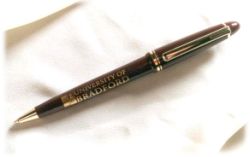“A woman was humiliated by a man. Her husband, who was a
Military personal, took his gun and shot the accused. Later he surrendered himself
to the Law. The case was presented before a Jury, who after a trial, provided
the Verdict - ‘Not-Guilty’.”
Any idea which case is being referred here? Nanavati
you said?
What if I say that the story in context here is not
about Kawas Nanavati? What if these events have happened in a Play, a Movie, a Novel,
and in Real but not in India?
Intrigued?
While going through the best novels of the century I
stumbled upon a Synopsis that felt too close to reality. The similarity with Nanavati case (1959)
literally perplexed me so I started digging a bit.
Initially it felt that, may be first time in history, we
have a REAL event Inspired by a Fiction. But the more I dug, the deeper
went the rabbit hole.
·
John D. Voelker was a Lawyer in Michigan.
He represented Lt. Coleman A. Peterson as his defense attorney who was
accused of killing Maurice Chenoweth. Lt. Peterson claimed that Mr. Chenoweth
has raped his wife Charlotte. The Jury provided the verdict ‘Not-Guilty’
as they termed the act as ‘Insanity defense’ / ‘Irresistible impulse’.
[1][2]
·
John D. Voelker under the Pen Name Robert
Traver authored the Novel titled ‘Anatomy of a Murder’, based on Lt.
Coleman case, which is celebrated as one of the best Court room drama in
fiction.[3]
·
Otto Preminger, who was a celebrated
Director at that time, made a movie, with the same name, based on this novel. [4]
·
Elihu Winer and John Van Druten have turned
the story into a play which premiered at the Mill Run Theater in Chicago
in 1963.[5][6]
·
Commander Kawas Manekshaw Nanavati
was tried for the murder of Prem Ahuja who was having an affair with his wife Sylvia. The Jury provided the verdict ‘Not-Guilty’. The act
was termed as ‘heat of the moment’ or in pop-culture as ‘Crime of
Passion’. [7]
·
On March 11, 1960 and on November 24, 1961
both Maharashtra High court and Supreme court found and upheld the verdict that
Commander Nanavati was guilty of murder. After around 3 years in prison
Vijayalakshmi Pandit, then Governor of Maharashtra, pardoned
Nanavati in 1964. [8][9][10]
To understand how these events may have affected
Nanavati case, we need to investigate the timeline.
- July 31, 1952 - Lt. Peterson shot Maurice
Chenoweth
- September 23, 1952 – Jury provided verdict of ‘Not-Guilty’
to Lt. Peterson
- January 1958 – John D. Voelker (Robert Traver)
published the novel
- April 27, 1959 - Commander Nanavati
shot Prem Ahuja
- July 1, 1959 – The movie premiered in
Detroit, Michigan
- September 23, 1959 – Jury provided the
verdict ‘Not-Guilty’ to Commander Nanavati.
Commander Nanavati was in Military
just like Lt. Peterson. All the events have happened before or during Nanavati
case trial which elevates these concerns
- Was the case of Lt. Peterson discussed in Indian
Military?
- Was Commander Nanavati aware of the actual case
or the Novel?
- Were the Nanavati case proceedings got affected
by the Case, Novel or even the Movie related to Lt. Peterson as it was released
just after the start of Trial?
Its been over 60 years now
of the Historical verdict but if an iota of the concerns is true then maybe
it requires a fresh perspective.
Fun Facts:
- On
September 2019 AltBalaji and Zee5 released a series ‘The Verdict - State Vs
Nanavati’. The title of the fifth episode was ‘Anatomy of Murder’. [11]
- The
Nanavati shooting date on Wikipedia was wrongly mentioned as ‘1st
November’. During my research I have corrected it as 27th April
1959 and provided the reference to the Supreme court verdict document. [12]
- The Nanavati case has often been tagged as the
Case which stopped Jury Trial in India. But Jury were used up to 1973
(West Bengal). [13]






